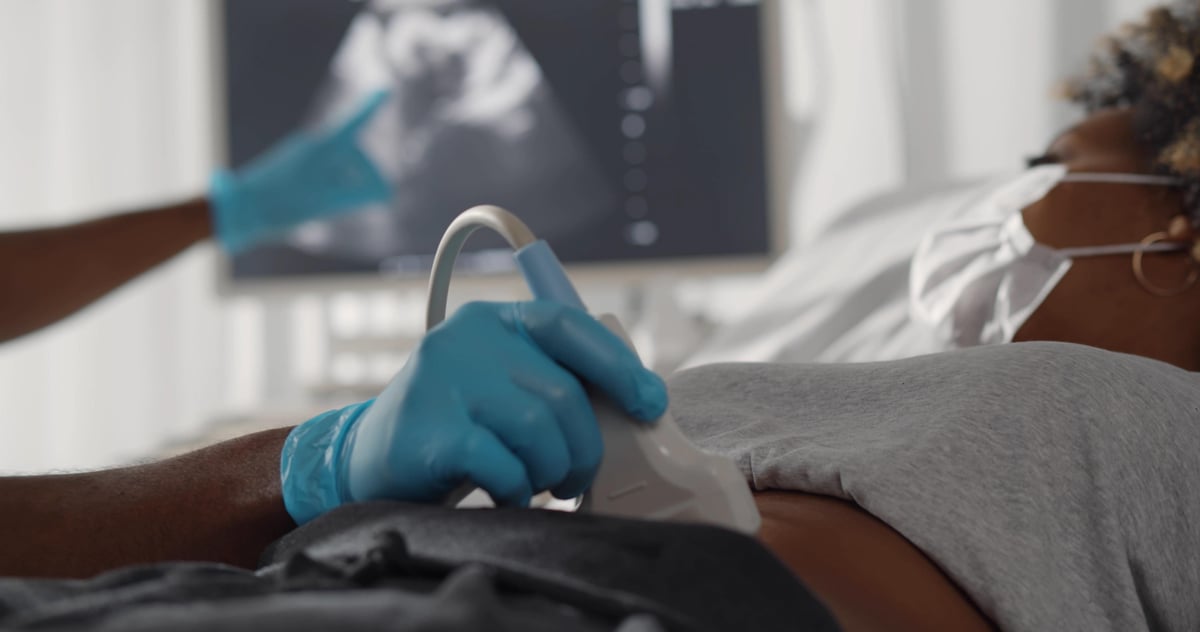Vaccine Taken During Pregnancy Might Shield Baby Against RSV

THURSDAY, April 28, 2022 (HealthDay News) -- An experimental vaccine given during pregnancy has shown early promise for protecting infants from a potentially severe respiratory infection.
The vaccine, being developed by Pfizer, aims to protect babies from respiratory syncytial virus, or RSV. Most of the time, RSV causes nothing more than a cold. But it can lead to serious lung infections in some babies, especially preemies, and in young children with certain medical conditions.
The researchers found that the experimental vaccine, dubbed RSVpreF, could be safely given to moms between the 24th and 36th week of pregnancy. The vaccine spurred them to generate infection-fighting antibodies against RSV, which were then transferred across the placenta — providing their newborns with defenses against the virus.
It remains to be seen how well the vaccine ultimately protects infants from illness, according to experts who were not involved in the trial.
But they called the early results encouraging.
"This approach could provide protection against RSV starting from the time of birth," said Dr. William Muller, an infectious disease specialist at Children's Hospital of Chicago.
That would differ from the one existing way doctors have to prevent serious RSV infections: an injection antibody drug called palivizumab, which is given to certain infants.
The major limitation of that approach is that it's cumbersome — requiring up to five monthly injections during RSV season — and expensive. Because of that, the drug is reserved for high-risk preemies.
So there is a need for additional ways to protect more infants, Muller said. He noted that of infants who end up in the hospital with severe RSV, most had been perfectly healthy before getting sick.
A number of companies are working on ways to immunize babies against the infection. One strategy is a drug called nirsevimab which, like palivizumab, is a lab-engineered antibody given to infants by injection. The difference is, it's long-acting and only requires one shot before the start of RSV season.
Muller was involved in a recent clinical trial of the drug. It found that nirsevimab cut infants' risk of being hospitalized with RSV by 62%.
The current study involved 406 pregnant women randomly assigned to receive varying doses of the RSVpreF vaccine or a placebo. No safety issues turned up, and the approach worked as hoped.
The findings were published April 28 in the New England Journal of Medicine.
"They showed that the vaccine did generate (RSV) antibodies in moms, and their babies received them," said Dr. Kathryn Edwards, a professor of pediatrics at Vanderbilt University School of Medicine, in Nashville.
The next study phase, she said, will answer the ultimate question: How effective is the vaccine against serious RSV illness?
Edwards, who is also a spokesperson for the Infectious Diseases Society of America, agreed that an advantage of vaccinating moms-to-be is that it provides infants with RSV antibodies from day one.
"But a limitation is that those antibodies will decline over time," she added. Antibodies passed from mom to baby are called "passive" antibodies — that is, the baby's own immune system is not producing them. And passive antibodies only last so long.
Muller agreed that the longevity question will be an important one.
With different RSV-protection strategies in development, both doctors said they think there is room for more than one.
Muller noted that passive antibody transfer may not work as well when babies are born prematurely. So a drug like nirsevimab, if approved, might offer a better option.
"The way I look at it," Edwards said, "the more options we have for prevention, the better."
She noted that in the United States, RSV is the leading cause of pneumonia in babies. It's also behind most cases of bronchiolitis, where the small airways of the lungs become inflamed.
Nationwide, over 2 million children visit the doctor for an RSV infection during a typical year, according to the U.S. Centers for Disease Control and Prevention. About 58,000 end up in the hospital.
There is no specific treatment for severe RSV itself, Muller said. Instead, hospitalized children are given oxygen, IV fluids and other treatments to manage their symptoms while the illness runs its course.
More information
The U.S. Centers for Disease Control and Prevention has tips for preventing RSV.
SOURCES: Kathryn Edwards, MD, professor, pediatrics, Vanderbilt University School of Medicine, Nashville, Tenn., and spokesperson, Infectious Diseases Society of America, Arlington, Va.; William Muller, MD, PhD, attending physician, infectious diseases, Lurie Children's Hospital of Chicago, and associate professor, pediatrics, Northwestern University Feinberg School of Medicine, Chicago; New England Journal of Medicine, April 28, 2022
Related Posts
Retiran 2 millones de columpios y mecedoras para bebés debido al peligro de estrangulación
MARTES, 16 de agosto de 2022 (HealthDay News) -- Se están retirando millones de...
Recommendations Developed for Managing Neuromuscular Blockade
FRIDAY, Jan. 6, 2023 (HealthDay News) -- In practice guidelines issued by the...
History of Eviction Linked to Child Developmental Risk
MONDAY, Sept. 19, 2022 (HealthDay News) -- A history of evictions is associated...
